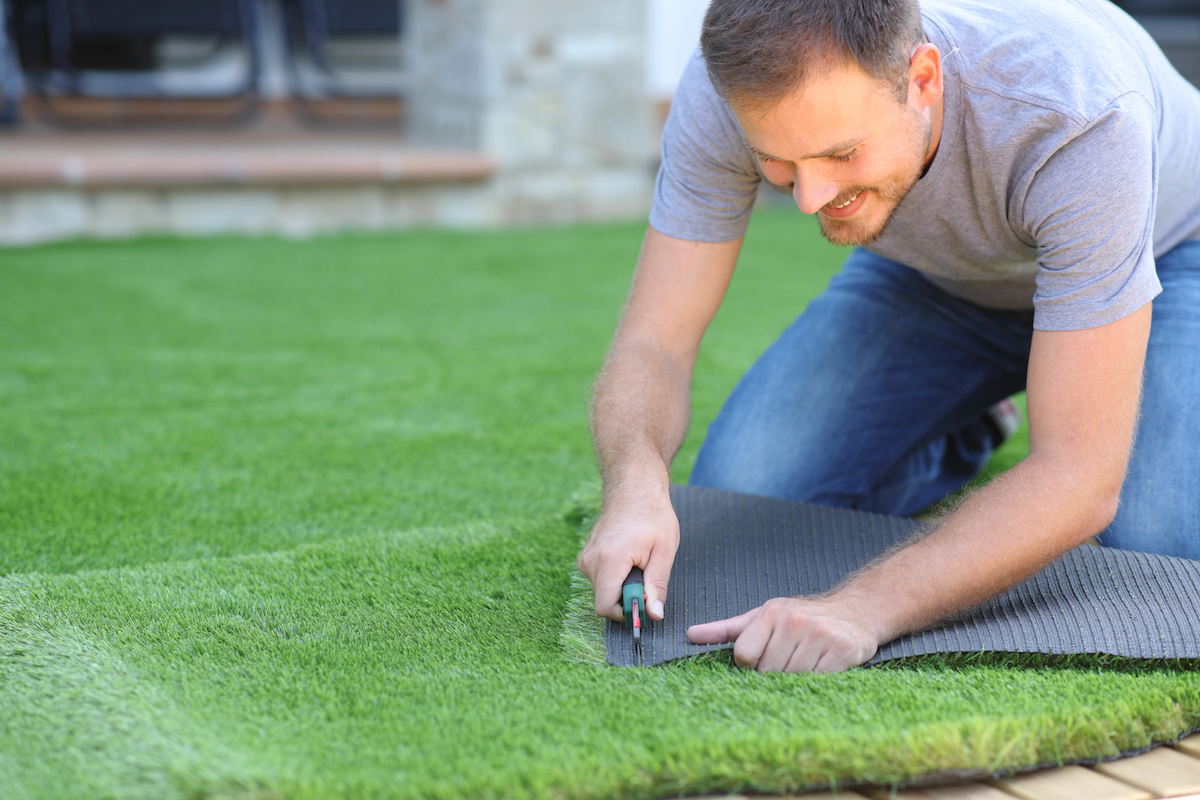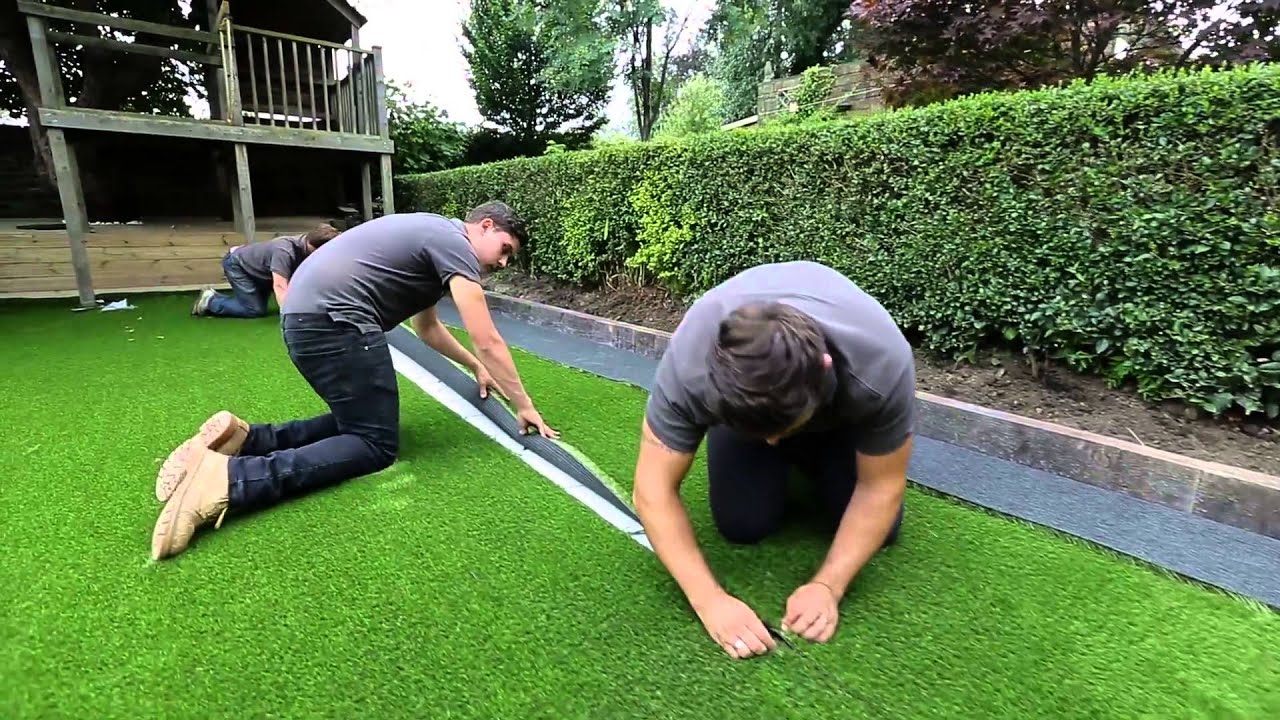See Why Homeowners Prefer Synthetic Grass for Sustainable Landscaping Practices
As house owners significantly focus on sustainability in landscape design, artificial turf has become an engaging option to typical yard. Its ability to conserve water, decrease maintenance efforts, and lessen ecological effect placements it as a sensible choice for those seeking environmentally friendly services. Additionally, the aesthetic charm and convenience of synthetic grass deal with diverse style preferences. The implications of this change extend beyond mere convenience and visual appeals, triggering a more detailed assessment of just how these selections affect more comprehensive ecological results. What stays to be discovered is the full range of benefits that synthetic grass can use to home owners and the environment alike.
Water Preservation Perks
One of the most significant benefits of synthetic grass is its function in water preservation. Standard yard lawns call for substantial amounts of water to preserve their lavish appearance, typically bring about overuse of local water resources, particularly in deserts. In contrast, synthetic grass removes this need totally, as it does not call for watering. This not just conserves water but also decreases the stress on metropolitan water systems, particularly during drought conditions.
In addition, the installment of synthetic grass can add to a more sustainable landscape. Homeowners can significantly lower their water costs, enabling reallocation of sources to other environmental campaigns or house uses. Furthermore, synthetic grass is made to hold up against numerous climatic conditions without the demand for supplementary watering, making it an ideal selection for regions encountering water shortage.
The environmental advantages prolong past prompt water savings. By decreasing water usage, synthetic grass assists to reduce the impacts of climate adjustment, maintaining important communities that are endangered by too much water extraction. As lasting landscaping practices get traction, fabricated grass becomes an accountable choice for house owners seeking to produce environment-friendly outdoor areas.
Lowered Maintenance Initiatives
Artificial lawn substantially lowers maintenance initiatives compared to traditional grass lawns. With fabricated grass, house owners can remove the time-consuming jobs related to natural landscaping, such as mowing, feeding, and weeding. This not just conserves important time however additionally reduces physical labor, making lawn care obtainable for individuals of all ages.
One of the most significant benefits is the lack of regular mowing. Conventional yards call for constant trimming to maintain a visually pleasing elevation, whereas fabricated turf remains consistently lush without the need for cutting. In addition, property owners no more require to apply fertilizers or pesticides, which are commonly needed to keep all-natural turf healthy and balanced. This shift not just lightens the workload yet likewise promotes a neater, extra uniform look year-round.
Furthermore, synthetic grass is durable and resilient, requiring marginal upkeep past occasional cleaning and rinsing to remove particles. This ease of upkeep allows home owners to enjoy their exterior areas without the constant concern of upkeep, giving more time for recreation and household tasks. Eventually, the minimized upkeep efforts related to artificial grass make it an appealing choice for those looking for a low-maintenance, visually appealing landscape.

Environmental Influence Reduction
There is an expanding recognition of the ecological benefits related to synthetic grass, especially in regards to water conservation and reduced chemical use. Traditional grass require significant quantities of water, especially in drought-prone areas, causing enhanced pressure on regional water resources. On the other hand, synthetic grass eliminates the requirement for watering, dramatically minimizing water consumption and advertising sustainability.
Furthermore, conventional yard upkeep typically entails the application of pesticides, plant foods, and herbicides, which can add to soil and water contamination. Synthetic grass alleviates this environmental danger by calling for very little maintenance and basically getting rid of the need for dangerous chemicals. This not only boosts soil health but also safeguards regional ecological communities from poisonous drainage.
In addition, the manufacturing of all-natural lawn yards normally entails using fossil gas for trimming and landscape design tools, more adding to greenhouse gas you could try this out discharges. By picking man-made grass, home owners can significantly lower their carbon impact connected with lawn care activities.
Aesthetic Allure and Flexibility
Along with its environmental benefits, synthetic grass provides considerable aesthetic charm and flexibility for landscaping. Property owners can achieve a rich, green look year-round, eliminating the seasonal changes commonly connected with all-natural lawn. This constant aesthetic not just enhances the aesthetic appeal of a residential or commercial property however additionally adds to a polished and well-kept appearance.
Furthermore, synthetic grass is offered in a range of designs, shades, and appearances, enabling modification to fit specific choices and layout motifs - Arizona turf. Whether used in property yards, industrial areas, or leisure locations, it can flawlessly integrate into diverse landscaping layouts, from modern-day minimal to lavish exotic settings
The versatility of synthetic lawn extends beyond simple look; it can be set up in different areas, consisting of roofs, outdoor patios, and also indoor rooms, producing opportunities for special landscape design solutions. Additionally, it is suitable for a variety of activities, from youngsters's backyard to pet-friendly environments, giving capability without compromising design.
Inevitably, the visual allure and adaptability of man-made turf make it an attractive option for home owners looking for lasting landscaping web solutions that do not give up elegance for ecological obligation.

Long-Term Price Financial Savings
One of the most compelling benefits of synthetic grass is its capacity for lasting expense savings. Unlike natural yard, which requires routine maintenance-- including mowing, watering, fertilizing, and pest control-- synthetic grass substantially decreases these continuous expenditures.
Furthermore, synthetic lawn has a life-span of 15 to 25 years, depending upon its quality and use. This longevity minimizes substitute costs, making it a more economical choice over time. Moreover, the preliminary investment in fabricated lawn can frequently be redeemed via the cost savings accrued over time.
While the in advance expense might appear greater compared to sod installation, the advancing savings from lowered upkeep and water usage typically surpass these initial expenses. Inevitably, the fostering of synthetic grass not only advertises a lasting landscape design solution yet also uses homeowners a financially savvy alternative that lines up with long-term budgeting objectives.
Verdict
Synthetic grass becomes a compelling choice for sustainable landscaping, using significant advantages in water conservation, reduced upkeep initiatives, and reduced ecological influence. Its visual allure and flexibility enhance the aesthetic landscape while aligning with modern-day sustainability objectives. Long-lasting price financial savings add to its good looks for property owners. As neighborhoods significantly prioritize environmentally pleasant practices, the adoption of man-made grass stands for a modern action toward attaining lasting and resistant landscapes.
In addition, fabricated turf is developed to hold up against different climatic problems without the need for extra watering, making it a perfect selection for areas facing water scarcity. (Arizona turf)

Artificial turf arises as a compelling choice for sustainable landscaping, offering significant benefits in water conservation, minimized maintenance initiatives, and lessened environmental effect.